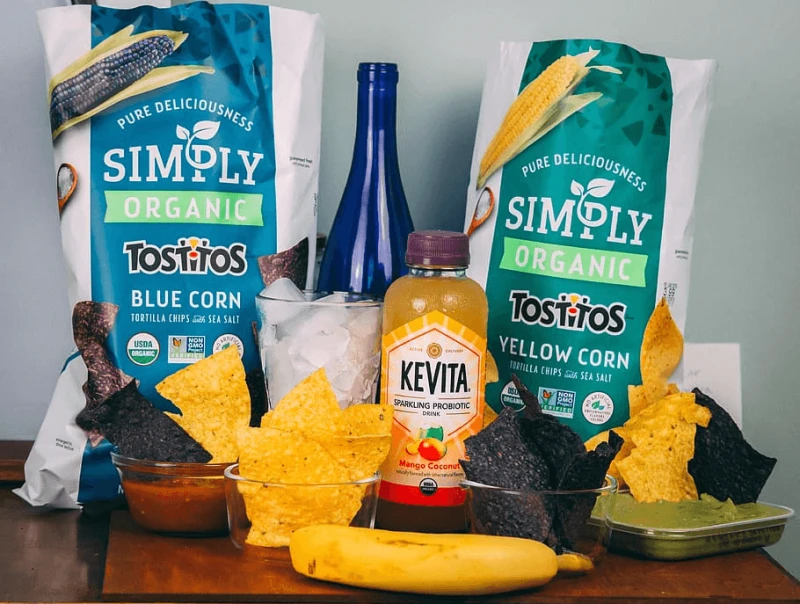Viewpoint: Why food labels like ‘organic’ and ‘GMO’ are misleading and why labeling regulation reform is necessary
Viewpoint: Why food labels like ‘organic’ and ‘GMO’ are misleading and why labeling regulation reform is necessary


As biotechnology advances, consumers face a myriad of new ingredients and labels to parse through at the supermarket. These labels, including ‘organic’ and ‘non-GMO,’ can often be confusing. There are competing views about the proper regulatory framework that will provide the highest nutrition to the most citizens at the lowest possible cost while respecting the environment. Comprehensive food labeling regulation reform can help consumers avoid deceptive marketing and allow farmers and grocers to compete fairly. In addition, it can be a tool to leverage the marketplace to implement climate-friendly solutions.
There are two possible approaches to implementing this reform: The best alternative would be to pass legislation that expands the BE labeling program, enhancing the labeling authority of USDA, strengthening Truth-in-Advertising laws, and providing a legal framework to address misleading claims across Federal agencies. Alternatively, the Federal Trade Commission (FTC) is already empowered to enforce existing Truth-in-Advertising laws. It can use this authority to reinforce the USDA’s existing labeling programs to ensure that consumer information aligns with scientific evidence.
As suggested above, language suggesting that using seeds descended from laboratory methods of genetic modification anywhere in the chain precludes organic production methods should be eliminated. This can be more accurately communicated using two different labeling permutations, “organic & BE” and “organic & non-BE.”
This is an excerpt. Read the original post here

 | Videos | More... |

Video: Nuclear energy will destroy us? Global warming is an existential threat? Chemicals are massacring bees? Donate to the Green Industrial Complex!
 | Bees & Pollinators | More... |

GLP podcast: Science journalism is a mess. Here’s how to fix it

Mosquito massacre: Can we safely tackle malaria with a CRISPR gene drive?

Are we facing an ‘Insect Apocalypse’ caused by ‘intensive, industrial’ farming and agricultural chemicals? The media say yes; Science says ‘no’
 | Infographics | More... |

Infographic: Global regulatory and health research agencies on whether glyphosate causes cancer
 | GMO FAQs | More... |

Why is there controversy over GMO foods but not GMO drugs?

How are GMOs labeled around the world?

How does genetic engineering differ from conventional breeding?
 | GLP Profiles | More... |

Alex Jones: Right-wing conspiracy theorist stokes fear of GMOs, pesticides to sell ‘health supplements’




 Viewpoint — Fact checking MAHA mythmakers: How wellness influencers and RFK, Jr. undermine American science and health
Viewpoint — Fact checking MAHA mythmakers: How wellness influencers and RFK, Jr. undermine American science and health Viewpoint: Video — Big Solar is gobbling up productive agricultural land and hurting farmers yet providing little energy or sustainabilty gains
Viewpoint: Video — Big Solar is gobbling up productive agricultural land and hurting farmers yet providing little energy or sustainabilty gains Fighting deforestation with CO2: Biotechnology breakthrough creates sustainable palm oil alternative for cosmetics
Fighting deforestation with CO2: Biotechnology breakthrough creates sustainable palm oil alternative for cosmetics Trust issues: What happens when therapists use ChatGPT?
Trust issues: What happens when therapists use ChatGPT? California, Washington, Oregon forge immunization alliance to safeguard vaccine access against federal undermining
California, Washington, Oregon forge immunization alliance to safeguard vaccine access against federal undermining 30-year-old tomato line shows genetic resistance to devastating virus
30-year-old tomato line shows genetic resistance to devastating virus The free-range chicken dilemma: Better for birds, but with substantial costs
The free-range chicken dilemma: Better for birds, but with substantial costs ‘You have to treat the brain first’: Rethinking chronic pain with Sanjay Gupta
‘You have to treat the brain first’: Rethinking chronic pain with Sanjay Gupta
